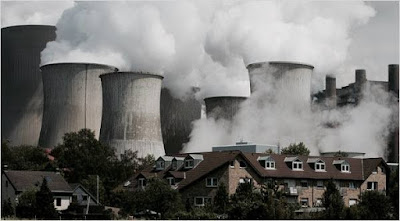France Implements Policy to Tackle Food Waste
Globally, among industrialized countries, food waste is a serious problem. Food waste is defined as any food substance, liquid or solid, cooked or uncooked, that is thrown away or discarded. The Food Waste Alliance (FWA) estimates that over 60 million tons of food waste in the US was generated in 2010; 40 million of that total ended up in landfills. The United States Department of Agriculture (USDA) estimates 30-40% of the food supply is never consumed.
Food waste is the single largest component going to landfills making it the third largest producer of methane gas. The food waste problem is not only an environmental problem but it’s also an economic problem. Wholesome, edible food that could be consumed by families suffering from food insecurity is going to landfills. Soil, water, and labor used to harvest, process and transport nutritious food is being re-directed from benefitting our society to creating environmental biohazards.
While the USDA and numerous consumer and environmental groups within the US have highlighted the problem in this country, France has chosen to implement policy through laws to handle food waste. In 2016, France banned supermarkets from throwing away unsold food. Stores over 4,305 square feet had until July 2016 to sign agreements with charities, or face fines of up to €75,000.
While France’s law provides a means of assisting charities feeding the needy, the food waste problem is more nuanced than mandating supermarkets donate their unsold food items. Agricultural waste, forestry and yard waste, animal biosolids, and food processing byproducts from animals and vegetables, also comprise useful organic waste streams, even while lacking edible food quality required for donations to food banks. These byproducts are not easily reused and turned into edible food consumable to humans or animals, however they can be converted to renewable energy. There are technological solutions currently available to turn organic waste into energy and fertilizer products - such as anaerobic digestion and cellulosic biofuel - turning waste streams into energy for municipalities, local businesses, and farms.
Both the France and the U.S. acknowledge there is a significant problem with food waste but France is the only one to implement policy to begin tackling the problem. One could argue that their prescriptive approach is limited and overly simplistic, but at least from a governmental approach, this is a good first step.
When you visit the USDA site on Food Waste, they readily acknowledge the problem. They discuss the economic and environmental loss due to food waste and yet there is no legislative mandate to directly solve the problem. As part of its mission, USDA launched a food loss and waste reduction goal of 50% by 2030. In 2013, USDA and the Environmental Protection Agency (EPA) joined together to launch the U.S. Food Waste Challenge to bring together charitable organizations and work with them to assess and disseminate information about best practices to reduce, recover, and recycle food loss and waste.
While the USDA mission is laudable, it is voluntary and there is no specific public policy to work with food suppliers, supermarkets, restaurants or food banks to specifically redirect consumable food to those who need it most. Also, there’s no public policy addressing non-consumable food products, despite the technology, available in either country. France gets a C+ for beginning to tackle the food waste problem. They lack policy initiatives to deal with other components in the food production cycle.
The US eeks out a passing grade of D because they have acknowledged there is a problem at the federal level. There’s considerable room for improvement if the USDA and EPA can enact some legislation and/or incentives which would encourage all key components in the food production cycle to participate in reduce, recover, and recycle food loss and waste prevention measures.
For more information on France’s progressive policies regarding food waste and France’s actions on using otherwise wasted food for good purposes:
france-vote-force-supermarkets-give-away-unsold-food-waste
By Bunnee Shelton for Green City Times. I'm an environmental enthusiast; Social Justice Advocate for the vulnerable – who are often People of Color, specifically Women of Color. @BunneeShelton (Twitter)


